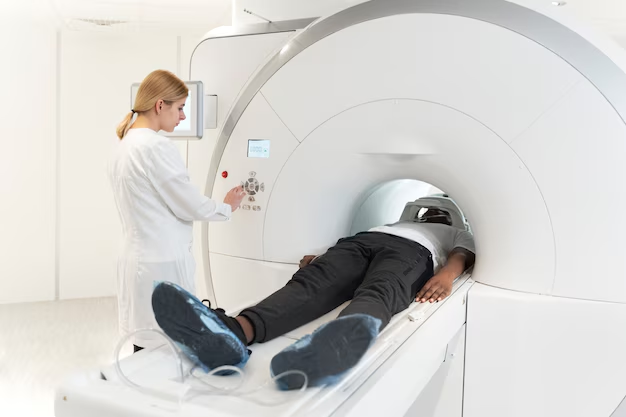Your Guide to Will Medicare Pay For a Pet Scan
What You Get:
Free Guide
Free, helpful information about Medicare Insurance and related Will Medicare Pay For a Pet Scan topics.
Helpful Information
Get clear and easy-to-understand details about Will Medicare Pay For a Pet Scan topics and resources.
Personalized Offers
Answer a few optional questions to receive offers or information related to Medicare Insurance. The survey is optional and not required to access your free guide.
Does Medicare Cover PET Scans? Here's What You Need to Know
When it comes to managing your health care, understanding what your insurance covers can be a daunting task. Positron Emission Tomography (PET) scans are a powerful diagnostic tool used for various medical conditions, including cancer, neurological, and cardiac disorders. If you or a loved one has been advised to get a PET scan, you might wonder: Will Medicare pay for it?
Understanding Medicare Coverage for PET Scans
Medicare does cover PET scans, but there are specific guidelines and conditions. Medicare Part B, which covers outpatient diagnostic tests, often includes PET scans if they meet certain criteria. Here's what you need to know:
- Physician's Order: The PET scan must be deemed medically necessary and must be ordered by your healthcare provider.
- Approved Conditions: Medicare coverage is usually approved for specific medical conditions such as certain types of cancer, heart tissue studies, and brain abnormalities.
- Qualified Facility: The scan must be conducted in a Medicare-certified facility to be eligible for coverage.
- Pre-authorization: In some cases, Medicare might require prior authorization before undergoing the scan.
In most instances, Medicare Part B covers 80% of the approved cost of a PET scan after you've met your annual deductible. You're responsible for the remaining 20%. Supplementary plans, like Medigap, can help cover those out-of-pocket expenses.
Navigating Your Options
If your PET scan isn't fully covered under Medicare, exploring financial assistance programs can be incredibly beneficial. Here's how you can ease the burden of medical costs:
- Medigap Plans: These supplementary plans can help you cover coinsurance costs and other out-of-pocket expenses effectively.
- Medicare Advantage Plans: Some plans might offer more comprehensive coverage for additional diagnostic tests. It's wise to review what each Medicare Advantage Plan offers.
For those struggling to meet medical expenses, awareness and use of various assistance programs can be life-changing.
Exploring Additional Financial Support
In addition to health-specific solutions, several federal and state programs can supplement financial burdens due to healthcare costs:
- Government Aid Programs: Engage with Social Security and other state-level programs that provide assistance for the elderly and low-income households.
- Debt Relief Options: Consider options to consolidate and manage existing medical debts. Some nonprofits offer free financial counseling for healthcare-related debts.
- Credit Card Solutions: Look into 0% interest credit cards for medical expenses, which can help manage costs in an interest-free period.
By being informed and proactive, you can navigate the healthcare system more effectively and make empowered financial decisions.
Simplifying Support Information
Eager to explore additional support avenues? Here's a helpful list of programs and solutions:
- 💰 Medigap Plans: Covers what Original Medicare does not
- 🏥 Medicare Advantage Plans: Extra coverage options
- 🏦 Low-Interest Medical Loans: Tailored for healthcare expenses
- 📨 Government Financial Aid: Check eligibility for state/federal programs
- 💳 0% Interest Credit Cards: Manage medical costs effectively for short-term
- 📚 Educational Grants: Offset education-related costs for healthcare
Proactively seeking the right combination of resources can significantly alleviate the stress of high medical expenses and pave the way for better financial management and health outcomes.
What You Get:
Free Medicare Insurance Guide
Free, helpful information about Will Medicare Pay For a Pet Scan and related resources.

Helpful Information
Get clear, easy-to-understand details about Will Medicare Pay For a Pet Scan topics.

Optional Personalized Offers
Answer a few optional questions to see offers or information related to Medicare Insurance. Participation is not required to get your free guide.


Discover More
- Am I Elgible For Medicare
- Am I Enrolled In Medicare
- Am I Qualified For Medicare
- Are Adult Diapers Covered By Medicare
- Are Chemotherapy Drugs Covered By Medicare Part d
- Are Colonoscopies Covered By Medicare
- Are Covid Tests Covered By Medicare
- Are Cpap Machines Covered By Medicare
- Are Cpap Supplies Covered By Medicare
- Are Dental Implants Covered By Medicare
